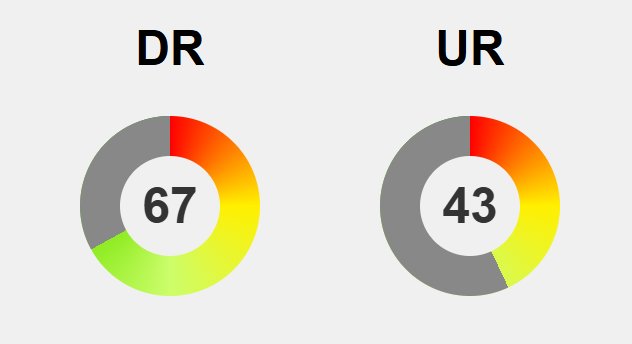Are the stars truly guiding our destinies or merely reflecting our subconscious fears? Astrology, an ancient practice rooted in the idea that celestial bodies at our birth influence our personality and life paths, offers a captivating lens into self-understanding. Its intricate system considers the positions of planets, the moon, and zodiac signs, weaving them into birth charts that supposedly reveal core traits and potential futures. Yet, despite its poetic allure and psychological appeal, science remains skeptical—lacking empirical support and plausible mechanisms for celestial influence. Still, millions turn to horoscopes and charts for clarity, comfort, and a sense of cosmic connection. The enduring debate presses us to ask: is astrology a meaningful reflection of our inner worlds or a cultural mirror that satisfies deep human longing for order and purpose? As technology blends tradition with modern insights, astrology persists—offering both mystery and a mirror to the subconscious, inviting us to explore our place in the universe.
Unlocking the Cosmic Blueprint: How Celestial Patterns Shape Your Life
Astrology is built on the idea that the positions of celestial bodies—planets, stars, and the moon—at the exact moment you’re born can shape your personality and influence your life’s journey. It’s not just about pretty star charts; believers see these cosmic arrangements as meaningful markers that leave a lasting imprint on who you are. According to astrology, the universe’s position at your birth acts like a fingerprint, revealing your core traits, emotional tendencies, and even potential future paths.
This system suggests that planets and stars don’t drift aimlessly through space. Instead, they emit energies that reach us here on Earth, subtly guiding aspects of our inner worlds. As these celestial bodies move through different zodiac signs and houses, they are believed to activate specific qualities or life areas. For example, when the sun is in Aries, it’s thought to energize assertiveness and confidence, while in Pisces, it might bring out sensitivity and artistic expression.
Central to astrology is the zodiac, with its twelve signs, each associated with broad personality traits based on the sun’s position at your birth—your sun sign. But astrology considers more than just the sun; the moon reflects your emotional landscape, and the positions of planets like Mercury, Venus, and Mars influence communication, love, and action. All these elements come together in a birth chart, a detailed map that’s said to reveal the unique cosmic influences shaping your life.
A key concept is the idea of aspects—angles between planets that describe how their energies interact. When planets form certain relationships, like conjunctions or squares, they’re believed to modify or intensify each other’s influence, adding layers of nuance to your personality profile. This complexity makes astrology feel like a sophisticated system rather than a simple classification, showing how different planetary energies combine to influence your choices and challenges.
Your birth chart functions like a personalized celestial story, capturing the precise placements of planets relative to the zodiac signs and houses at your exact moment of birth. Interpreting it involves analyzing where each planet sits, the angles they form, and how these elements interact. The goal is to uncover your core traits, potential hurdles, and future opportunities—offering a unique, cosmic blueprint meant to deepen your understanding of yourself.
Many find that astrology provides a sense of order in a chaotic world. It offers a language for understanding oneself and others, helping to identify recurring patterns, strengths, and vulnerabilities. Whether through daily horoscopes or deep-dives into birth charts, astrology invites curiosity about our place in the universe and the unseen forces that might influence us. While skeptics question its scientific validity, the enduring appeal of astrology reflects a universal desire for connection, meaning, and self-awareness.
The Building Blocks of Astrology: Secrets of the Stars and Their Influence
The core idea behind astrology is that the positions of celestial bodies—planets, stars, and the moon—at the moment you’re born influence your personality and life experiences. These bodies aren’t just distant objects drifting aimlessly through space; they are believed to emit energies that reach us here on Earth and shape who we are. As they move through the sky, they pass through different zones called zodiac signs and houses, each associated with specific traits or areas of life. For example, when the sun is in Aries, it’s thought to energize qualities like assertiveness and confidence, while in Pisces, it might bring out sensitivity and artistic tendencies.
The zodiac itself is divided into twelve signs, each linked to broad personality traits based on the sun’s position at your birth—the classic sun sign. But astrology considers more than just the sun. The moon plays a crucial role, revealing your emotional landscape and inner world, while planets like Mercury, Venus, and Mars influence communication, love, and action. These celestial bodies are positioned within the twelve houses of your birth chart, creating a detailed map that aims to reflect the cosmic influences shaping your life. This map, or natal chart, is like a snapshot of the sky at your exact moment of birth, capturing the complex interplay of energies that are believed to influence your personality and choices.
A fundamental concept in astrology is the idea of aspects—specific angles between planets that describe how their energies interact. When planets form certain relationships, like conjunctions (0°), squares (90°), or trines (120°), they are thought to modify or intensify each other’s influence. These interactions add layers of nuance to your personality profile, showing how different planetary energies combine to affect your decisions, challenges, and strengths. This complexity makes astrology feel like a sophisticated system, rather than a simple classification, reflecting the dynamic relationships among celestial bodies.
Your birth chart is essentially a personalized celestial story, mapping out where each planet was relative to the zodiac signs and houses at the moment you entered the world. Interpreting it involves analyzing the positions, angles, and relationships among these planets. The goal is to uncover your core traits, potential hurdles, and future opportunities—offering a unique blueprint that, according to believers, provides insight into your true self. This detailed map is seen as a tool for self-understanding, helping to reveal hidden tendencies and life patterns.
Broadly speaking, astrology emphasizes that celestial patterns aren’t random—they carry meaningful information. The positions of planets and stars at any given time are thought to leave “cosmic fingerprints” that influence our personality traits, behaviors, and life’s purpose. This belief in a divine or cosmic order suggests that our lives are interconnected with the universe in ways that go beyond surface appearances, providing a symbolic language to explore who we are and where we’re headed.
While astrology’s mechanisms lack validation from modern science, its enduring appeal lies in its symbolic richness and personal relevance. Many find comfort and clarity through star charts and horoscopes, which offer a framework for understanding themselves and their experiences. Rather than a precise science, astrology functions as a reflection—a mirror to our subconscious fears, hopes, and aspirations—helping us navigate the complexities of life with a sense of meaning and connection.
Debates and Discoveries: Navigating the Scientific Landscape of Astrology
The scientific community largely dismisses astrology because it lacks rigorous empirical support. Many well-designed studies have tested whether astrological predictions or personality assessments based on birth charts outperform random chance, and the results consistently fall short. Large-scale analyses have shown that astrology’s claims about traits or future events aren’t more accurate than guesswork. Critics highlight how astrology often relies on vague language and the Barnum effect, where people see themselves in broad statements that could apply to almost anyone. This tendency makes it easy for individuals to interpret generic descriptions as personal truths, blurring the line between genuine insight and psychological trickery.
Supporters, however, point to anecdotal examples and small studies suggesting some influence of celestial patterns. They cite correlations between zodiac signs and certain behaviors or life outcomes, but these claims often stem from limited data sets and lack proper controls. Confirmation bias plays a significant role—people tend to remember the predictions that seem to fit and forget those that don’t, reinforcing their belief in astrology’s validity. Without consistent, replicable evidence, these stories remain unconvincing from a scientific standpoint.
One of the key issues for astrology is the absence of a plausible mechanism. Physics and biology tell us that distant planets and stars exert forces far too weak to influence human personality or decision-making. No known force connects celestial positions with the intricate workings of the human mind in the way astrology suggests. This disconnect makes it impossible for science to accept astrology as anything more than a cultural or psychological phenomenon rather than a genuine cosmic influence.
Many critics argue that astrology’s enduring appeal is rooted more in its comforting and symbolic qualities than in factual accuracy. It provides a simple framework to make sense of life’s chaos, offering reassurance and a sense of order. Yet, this comfort can lead some to over-rely on horoscopes or birth charts for guidance, sometimes at the expense of practical or evidence-based advice. When predictions fail, skepticism grows, but for many, the allure remains—couched in personal stories and a desire for connection to something greater.
The ongoing debate taps into a fundamental human desire: the need to find meaning and connection in the universe. While the scientific community regards astrology as pseudoscience, its cultural presence persists strongly. Millions continue to turn to it for self-reflection, comfort, and a sense of belonging to a larger, mysterious order. This divide underscores how astrology functions more as a reflection of collective psychology and cultural symbolism than as a validated scientific system.
Despite scientific criticisms, astrology’s role as a cultural phenomenon endures because it offers more than just predictions—it provides a language for understanding ourselves and our place in the cosmos. Its stories mirror subconscious hopes, fears, and aspirations, making it a powerful tool for personal reflection. As such, its influence persists because it resonates with a universal human quest for meaning, even if it defies scientific validation.
The future of astrology likely involves continued adaptation to new technologies and platforms. Digital tools like apps and online communities keep it accessible and engaging for new generations. Some practitioners are experimenting with blending traditional astrology with biometric data and other scientific insights, although these efforts remain symbolic rather than empirical. This ongoing evolution helps maintain its relevance amid a world increasingly driven by data and skepticism.
Ultimately, the debate around astrology highlights a core truth: humans seek connection and understanding beyond what science can readily explain. While it may never be validated as a science, astrology’s power lies in its ability to reflect our inner worlds, inspire curiosity, and foster community. Its resilience shows that the stars, whether literally or symbolically, continue to guide us in ways beyond measurable evidence, fulfilling a deep-seated need for meaning in a complex universe.
This ongoing evolution has also led to the development of various online platforms and resources that make astrology more accessible and personalized. For those interested in exploring more about how astrology intersects with cultural history and psychological influences, you can find insightful information at Astrology History and Cultural Significance. These resources help deepen our understanding of why astrology continues to hold a place in modern society, despite the scientific criticisms.
Harnessing the Stars: Practical Ways Astrology Guides Daily Decisions and Personal Growth
Many turn to astrology as a practical tool to help navigate everyday decisions and personal growth. Whether it’s choosing the best moment to start a new project or understanding the dynamics of a relationship, astrology offers a symbolic framework that can bring clarity and reassurance. For instance, checking your daily horoscope might give you a subtle hint about the energy or challenges you could face, acting as a gentle nudge rather than a strict rule. Similarly, analyzing your birth chart can highlight your strengths and potential areas for development, guiding you to make choices aligned with your perceived cosmic influences.
However, relying solely on astrology for decision-making can be risky. Some people treat horoscopes or birth chart readings as infallible, which can lead to overlooking practical considerations or evidence-based advice. When outcomes don’t match predictions, it’s easy to dismiss astrology altogether or, conversely, cling to it as a guiding force. This overdependence might distort judgment, making actions feel predetermined rather than driven by personal agency and reason.
Despite these pitfalls, many find value in astrology’s reflective quality. Examining a birth chart or following daily horoscopes can spark curiosity about recurring patterns in behavior, emotional responses, and relationship tendencies. It offers a language to explore internal dynamics and subconscious motivations, encouraging self-awareness. In this way, astrology acts less as a strict blueprint and more as a mirror—highlighting traits and tendencies that might otherwise go unnoticed and inspiring intentional growth.
Using astrology as a supplement rather than a substitute helps maintain balance. For example, if a horoscope suggests a good day for new beginnings, weighing that advice against your practical schedule and goals can lead to more grounded decisions. Combining astrological insights with real-world considerations creates a flexible approach, avoiding rigid reliance on celestial predictions. Recognizing that astrology provides symbols and stories, not certainties, allows you to enjoy its benefits without sacrificing critical thinking or personal responsibility.
Today’s digital tools make it easier than ever to incorporate astrology into daily life. Apps and websites offer personalized birth chart calculations, daily updates, and compatibility checks, making it accessible for beginners and skeptics alike. Online communities and books provide avenues for deeper learning and discussion. When approached thoughtfully, astrology can serve as an inspiring resource for self-exploration, helping you reflect on your inner world and make decisions that resonate with your sense of purpose.
For many, astrology fosters a sense of connection to something greater than themselves. It creates a narrative that helps make sense of life’s chaos and uncertainties, offering comfort in knowing there’s a larger story at play. By highlighting recurring themes and personal patterns, it encourages a reflective mindset—one that can lead to meaningful change and growth over time. Even if not scientifically proven, this introspective aspect holds significant value for those seeking understanding and reassurance.
In a world increasingly driven by data and rationality, astrology’s influence persists because it taps into universal human needs. Its stories and symbols act as a bridge to our subconscious, fostering a sense of order and purpose. As new generations adopt and adapt these ancient traditions using modern technology, astrology remains a relevant and accessible tool for personal development. Its enduring appeal lies in its capacity to inspire curiosity, foster community, and help us find meaning amidst life’s complexities.
Stars, Science, and Society: The Future of Astrology in a Rational World
Despite ongoing skepticism from the scientific community, astrology remains a meaningful part of many people’s lives. Its symbols and stories continue to offer a sense of connection, purpose, and self-reflection that science alone struggles to provide. While empirical evidence for celestial influence is lacking, the enduring popularity of astrology highlights a universal human desire: to find order in chaos and to understand ourselves within a larger cosmic framework. For many, astrology offers a language of symbols that mirrors subconscious hopes, fears, and aspirations, making it a powerful tool for exploring identity and life’s deeper questions.
In the future, astrology is likely to evolve alongside technological advances. Digital platforms, personalized apps, and online communities make it more accessible and engaging than ever before. Some practitioners are blending traditional astrology with scientific data and biometric insights, creating new ways to interpret celestial patterns—though these remain symbolic rather than empirical. This fusion of ancient symbolism with modern technology helps keep astrology relevant, allowing it to adapt to a world increasingly driven by data and skepticism while still resonating with those seeking meaning.
The cultural role of astrology extends beyond predictions; it functions as a mirror reflecting our inner worlds. Its stories and symbols tap into deep psychological needs for connection, understanding, and belonging. As long as it continues to inspire curiosity and offer insights into our subconscious, astrology will likely persist as a vital cultural phenomenon. Its ability to foster community, spark conversations, and provide comfort ensures it remains a meaningful part of human experience, regardless of scientific validation.
The ongoing debate about astrology’s validity underscores a fundamental aspect of human nature: the search for meaning beyond facts. While science may never fully endorse astrology as a proven influence from the stars, its power lies in its capacity to offer personal reflection and a sense of belonging to something greater. Its resilience demonstrates that the desire to connect with the universe—and ourselves—transcends empirical proof. As new generations explore and reinterpret these ancient stories, astrology’s symbolic language continues to serve as a bridge between inner and outer worlds.
In the end, astrology’s staying power reveals a simple truth: humans seek stories that help us navigate the complexities of life. Whether regarded as a spiritual guide, cultural tradition, or psychological mirror, astrology remains a symbol of our enduring quest for understanding and connection. Its future depends not on scientific validation but on its ability to inspire wonder, foster community, and provide meaning amidst the uncertainties of modern existence. In the stars’ silent dance, many find a reflection of their own journey—an ongoing dialogue between the cosmos and the human spirit.




